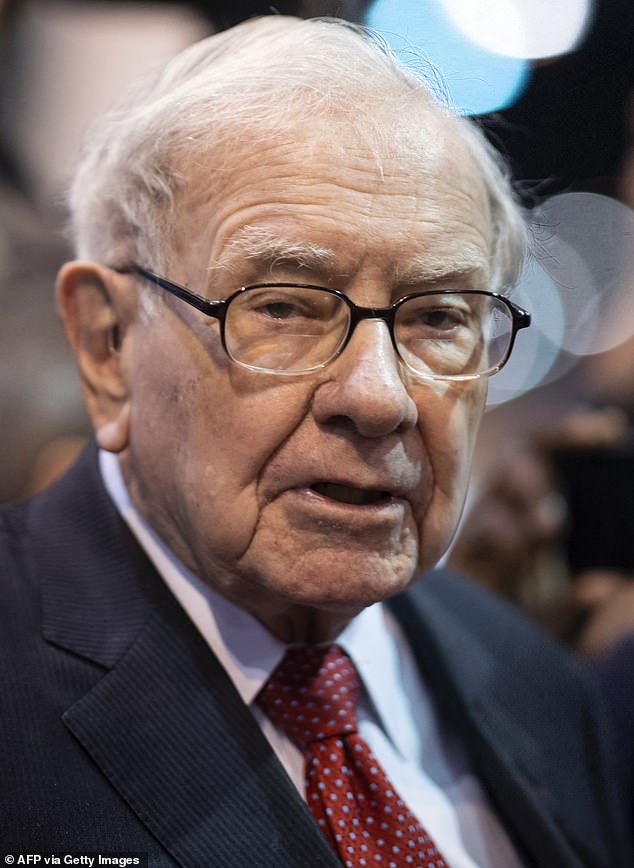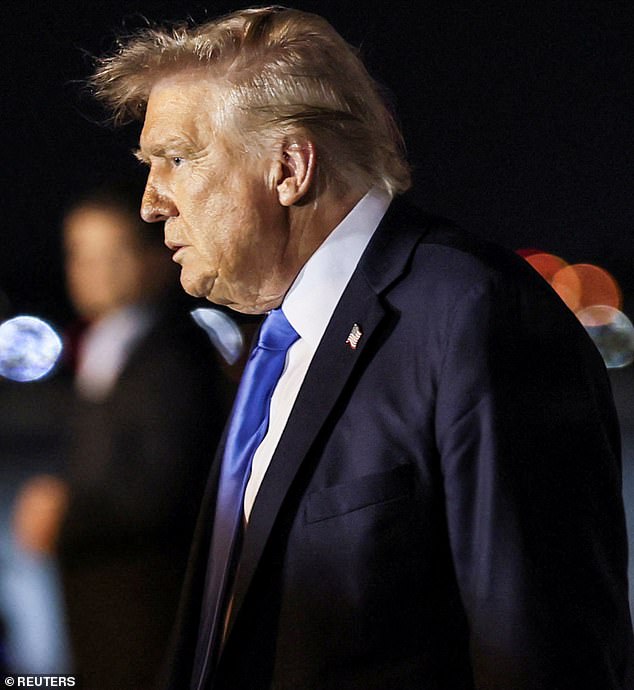This was a career like no other; but at the age of 94, and after 60 years at the helm of his company Berkshire Hathaway, on Saturday Warren Buffett told the annual public meeting of his adoring shareholders that he was leaving them.
His voice was weaker than in previous years and he now walks with the aid of a cane. But, still, it came as a shock. Not least because in 2025 the shares in his company had been outperforming the market, rising by 20 per cent.
This, more or less, is what Buffett had been achieving since 1965, when he acquired a Massachusetts-based textile mill called Berkshire Hathaway, and turned it into a vehicle for investing in, or buying outright, businesses he admired, run by people he trusted.
The results are unprecedented in the history of enterprise. Buffett paid $7.50 a share when he took control of the (far from exciting) company: at the close of last week Berkshire Hathaway’s ‘A’ shares – 38 per cent of which Buffett owns – were trading at a record $809,808.50 each.
It was put another way by a grateful investor in 2023, after a period in which the shares had under-performed the market: ‘$1 invested in the Standard and Poor 500 in 1965 would now be worth $279. $1 invested with Buffett would now be worth $35,521. That is a difference of 127-fold.’
Perhaps the most extraordinary aspect is that Buffett has always been a cautious investor – and was scorned in the 1990s when he refused to buy shares in the dotcom boom, saying plaintively ‘I would never invest in something I don’t understand… I’ve never seen an electron.’
Instead, using the ‘free cash’ to which he had access as the collector of premiums through the ownership of insurance companies such as General Re, Buffett accumulated colossal stakes in mature US businesses he felt were under-valued at the time. So Berkshire owns 21 per cent of American Express, 10 per cent of Coca Cola and 9 per cent of Bank of America.
Actually, the man known as the ‘Sage of Omaha’ had, before anyone else, appreciated the extent to which many of America’s banks were headed for disaster via their investments in so-called ‘derivatives’. These, linked to overextended home loans, led to the credit crunch of 2008. That was the year Buffett became, on paper, the world’s richest man, as his judgment was vindicated.

Warren Buffett, the ‘Sage of Omaha’, has retired from Wall Street aged 94

While the financier is modest, faithful and wise, US President Donald Trump is vain, vicious and vulgar, Dominic Lawson writes
I got first-hand access to this wisdom, when in 2003 he invited me to interview him at his office in Omaha, Nebraska (a very rare privilege). At one point in our conversation he warned me that ‘in a few years’ there would be ‘major bank failures’ because of their ‘concentration of risk’ in mortgage-backed derivatives. He termed these ‘financial weapons of mass destruction’. And they were.
It was less easy to get to see Buffett than I had imagined, in a purely physical sense. There are no direct flights from the UK to Omaha, and even when I landed, the taxi driver at the airport at first had no idea where Berkshire Hathaway’s office was.
Once there, I understood why: the headquarters of what had become the world’s biggest conglomerate (now valued at over $1trillion) was part of one floor of a small rented building, with nothing on the outside to indicate Berkshire Hathaway’s presence, still less Warren Buffett’s. But as I emerged on the 14th floor as instructed, I heard a man’s voice calling out, ‘Dominic! I’m over here!’, and, following this, eventually found Buffett standing outside his office, a small room off a narrow corridor.
This unpretentiousness, or modesty, is the very core of the man. While he is fabulously wealthy through his stake in Berkshire Hathaway, making him worth $168 billion at the latest count, he has never sold a single share in the business, or taken a single dividend. He is paid a salary of $100,000 a year and lives accordingly. He still has just one home, the same five-bedroom house he bought for $31,500 in 1958 when his wife Susan was expecting their third child.
When I remarked on this with incredulity, Buffett laughed and said ‘You should have a look at it. It’s about a mile and half from here, on the same road.’
I did, later, and found it perched about 200 yards from a multi-lane highway – in other words, less desirable than it would have been in 1958 before the motorway intruded on its suburban peacefulness.
Buffett was excoriating, at the meeting the next day of his own grateful small shareholders, about the greed and hypocrisy of America’s CEOs putting their own wealth accumulation above the interests of the investors who are actually the owners of the businesses: ‘Chief executives talk about “diversity” but they don’t care about any of that kinda stuff. They just care about their comp[ensation]. There’s never been such a transfer of wealth in our history. And it’s obscene.’
You have to imagine this being said by Jimmy Stewart, as in ‘It’s a Wonderful Life’: Buffett’s voice was to my ears eerily identical to that mid-Western film star of his youth. And – pursuing the Hollywood theme – at that shareholders’ meeting in 2003, they were regaled with a filmed spoof of Buffett appearing in drag as Dorothy from the Wizard of Oz. The unstated point was that the Wizard of Oz is Wall Street, all stuff and nonsense, while mid-Westerner Dorothy tells the plain-spoken truth.
Back then, when I asked the immensely frugal Buffett what would happen to his vast fortune after his death, he replied: ‘100 per cent of my stock will go to my wife, if I die first, but on the death of the last two of us – and maybe sooner – it will all go to a foundation. That will be it.’
A few months later, to his great grief – even though she had left the marital home in 1977 – Susan died suddenly, from a stroke. In 2006 Buffett announced that he would give 99 per cent of his wealth to charity ‘during my lifetime or at death’. He declared that ‘this pledge will leave my lifestyle untouched and that of my children as well. They have already received significant sums for their personal use.’
It was very much in line with what he told me in that little office (which, I noticed, contained not a single computer screen): ‘It’s dumb to let possessions own you.’
Buffett has never sought any involvement in political life (although his father Howard, whose stern portrait had looked down on us as we spoke, was a Republican congressman for Nebraska).
But last week, he declared that the US should not use ‘trade as a weapon’ and added: ‘It’s a big mistake in my view when you have 7.5billion people who don’t like you very well.’
Buffett didn’t mention Donald Trump by name. But I couldn’t help thinking what an astonishing contrast there is between these two extraordinary Americans. On the one hand, Buffett’s modesty, faithfulness, wisdom and integrity. On the other, Trump’s vanity, viciousness, venality and vulgarity.
How sad for America that it is the latter now in the ascendant, defining to the world the great nation which should inspire respect rather than revulsion.







